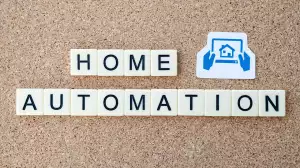Home Website Tech That Will Blow Your Mind
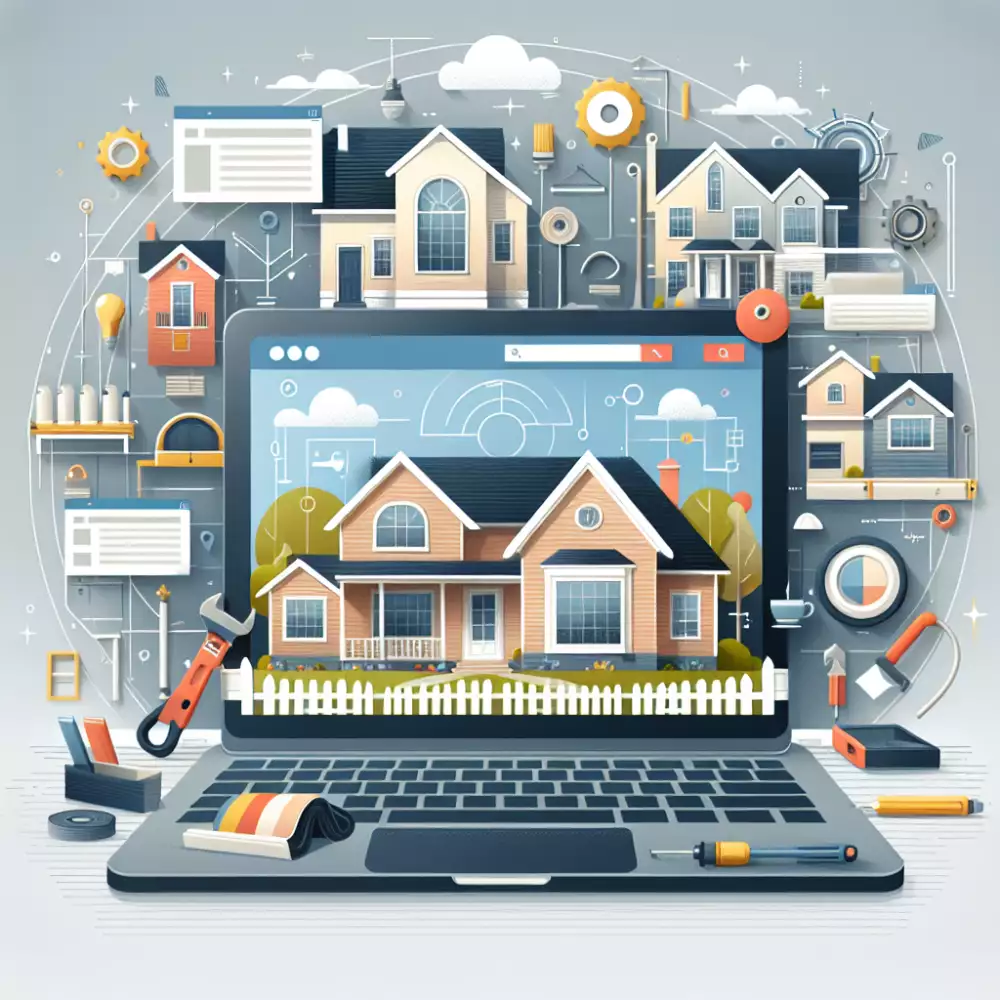
Smart Home Integration
Smart home technology is no longer a futuristic fantasy. It's here, it's convenient, and it can significantly enhance your living experience. Imagine controlling your lighting, temperature, appliances, and entertainment systems with just your voice or a tap on your smartphone. That's the power of a smart home.
Integrating smart home features can add significant value to your property. Potential buyers are increasingly interested in homes equipped with the latest technology. Smart thermostats can learn your preferences and optimize energy consumption, saving you money on utility bills. Smart lighting systems can be programmed to create the perfect ambiance for any occasion, while also enhancing security by mimicking occupancy when you're away.
Security is another area where smart home integration shines. Smart locks eliminate the need for traditional keys and allow you to monitor access remotely. Connected security cameras provide peace of mind by letting you keep an eye on your property from anywhere in the world. You can even receive real-time alerts on your phone if any suspicious activity is detected.
The beauty of smart home integration lies in its flexibility and scalability. You can start with a few basic devices, such as smart bulbs or a smart speaker, and gradually expand your system over time. As your needs evolve, so can your smart home, adapting to your lifestyle and providing you with unparalleled comfort, convenience, and control.
Virtual Tours
Imagine stepping inside a home without leaving the comfort of your couch. That's the power of virtual tours! With cutting-edge technology, we can now offer immersive, 360-degree experiences that let you explore every nook and cranny of a property as if you were actually there. Walk through the front door, explore the living spaces, peek into the bedrooms, and even step out into the backyard – all at your own pace and on your own time. No need to schedule appointments or brave the elements, simply click and explore. Virtual tours aren't just convenient, they're incredibly valuable. For potential buyers, they offer a realistic sense of a home's layout, size, and flow, helping you determine if it's the right fit before you even visit in person. And for those who can't physically visit a property, virtual tours provide an invaluable opportunity to experience it remotely. Whether you're a busy professional, live far away, or simply prefer to pre-screen properties from home, virtual tours make the homebuying process easier and more efficient.
Augmented Reality
Imagine using your smartphone or tablet to visualize different paint colors on your living room walls before you even pick up a brush. Or, picture yourself placing virtual furniture in your home office to find the perfect layout before you buy a single piece. That's the power of augmented reality (AR) for your home. AR takes digital images and overlays them onto your real-world view, usually through your phone or tablet's camera. This technology goes beyond simply browsing products online - it lets you experience them within your own space.
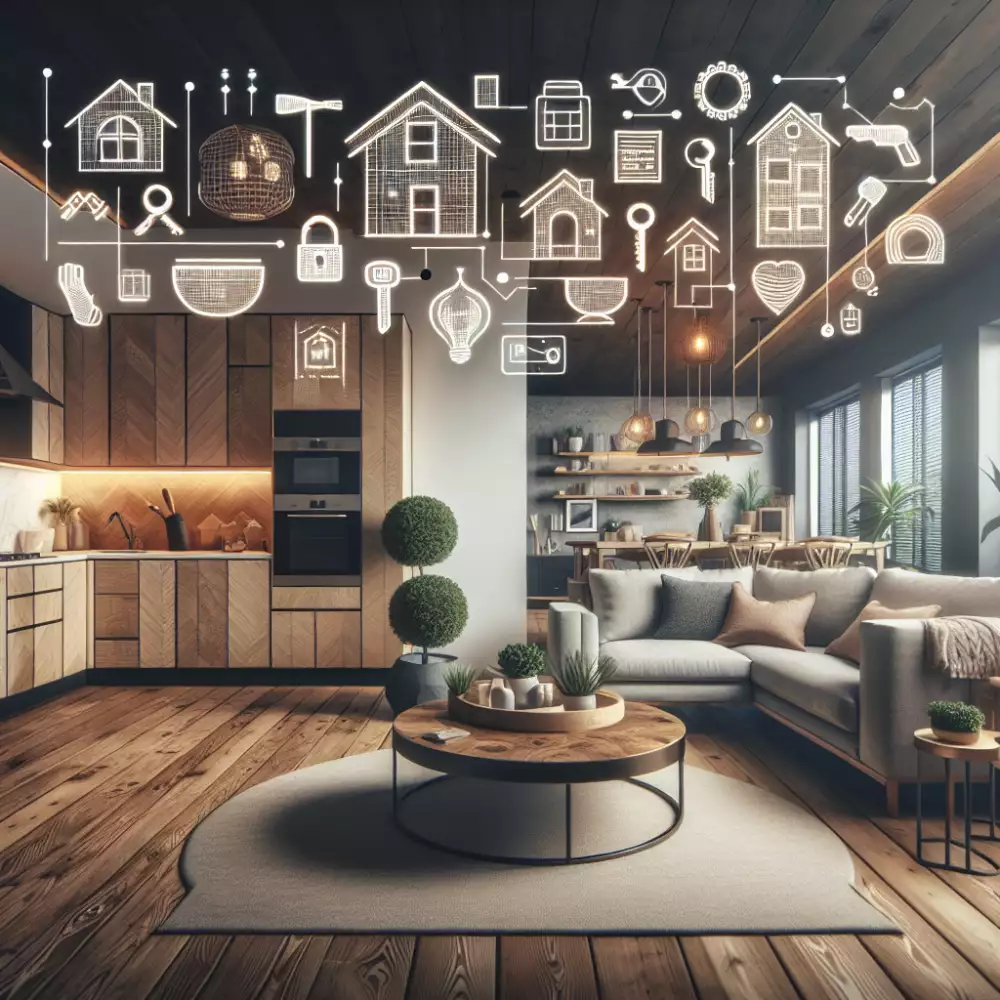
Think about the possibilities: trying out different flooring options, experimenting with landscaping designs, or even previewing how new kitchen cabinets would look. AR takes the guesswork out of home improvement and design. For those looking to buy a home, AR offers virtual tours that are more immersive than ever. You can walk through a potential property from the comfort of your couch, getting a real feel for the space and layout. Some real estate companies even use AR to showcase properties under construction, allowing buyers to visualize the finished product.
AR is revolutionizing the way we interact with our homes, making it easier and more fun to design, renovate, and even buy. As technology advances, expect to see even more innovative applications of AR in the home improvement and real estate industries.
Property Management Software
Property management software can be a lifesaver for busy landlords and homeowners. It can automate many of the tasks associated with managing a property, such as:
- Collecting rent payments online
- Tracking income and expenses
- Managing maintenance requests
- Screening potential tenants
- Communicating with tenants
This can free up your time so that you can focus on other aspects of your life.
There are many different property management software programs available, so it is important to choose one that meets your specific needs and budget. Some factors to consider include:
- The number of properties you own
- The type of properties you own
- Your budget
- The features that are important to you
If you are not sure which property management software program is right for you, many resources are available to help you choose. You can read online reviews, ask for recommendations from other landlords, or contact a property management software company for a demo.
Once you have chosen a property management software program, it is important to take the time to learn how to use it properly. Many programs offer online tutorials or customer support to help you get started.
Using property management software can save you time and money, and it can help you to be a more efficient and effective landlord.
Energy Efficiency Tools
Want to save money on your energy bills and reduce your carbon footprint? Energy efficiency tools can help! These tools can help you identify and address areas in your home where you're wasting energy.
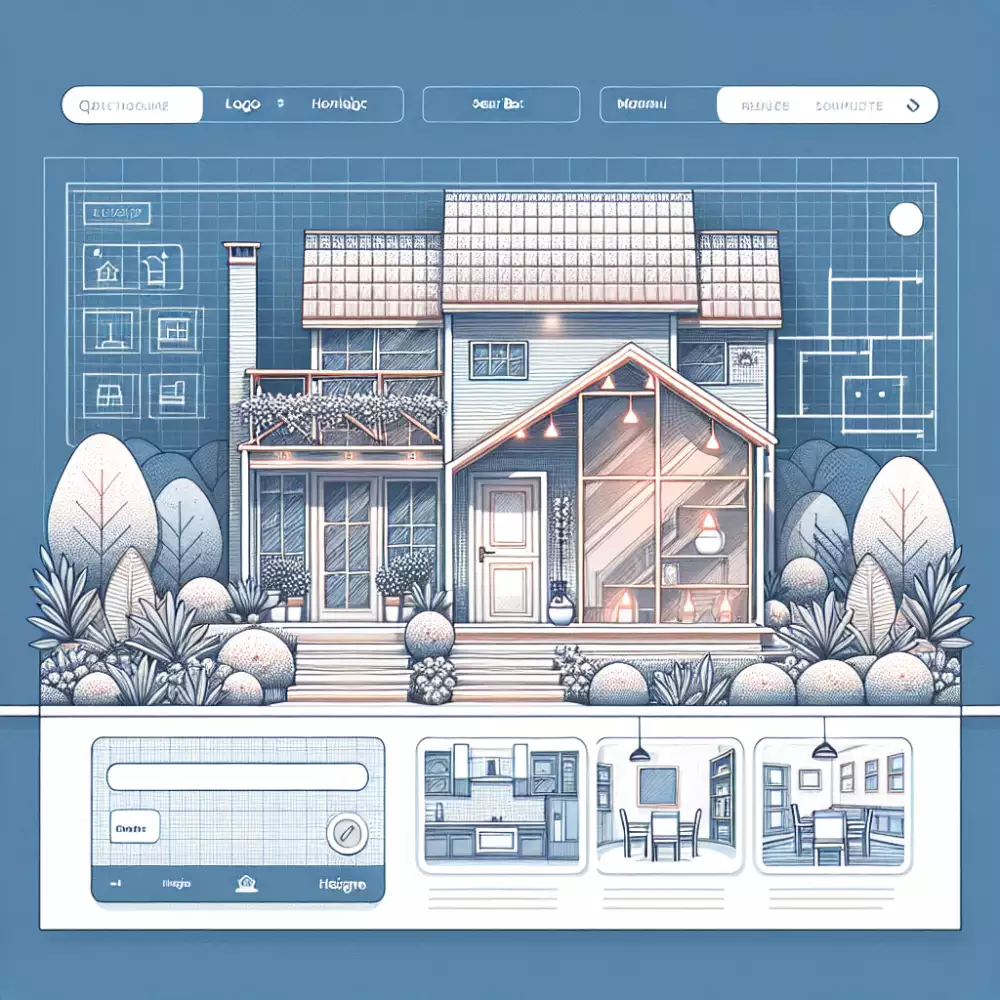
| Feature | Basic Home Website | Advanced Real Estate Platform |
|---|---|---|
| Property Listings | Limited, often only one property | Extensive database of properties |
| Search Functionality | Basic or non-existent | Advanced filtering by price, location, features, etc. |
| Interactive Features | Simple photo gallery, contact form | Virtual tours, mortgage calculators, neighborhood data integration |
| Mobile Optimization | May or may not be optimized | Fully responsive design for all devices |
| Cost | Low, often DIY or using basic templates | High, requires professional development and maintenance |
A home energy audit is a great place to start. During an audit, a qualified professional will assess your home's energy consumption and identify areas for improvement. They will look for air leaks, insulation gaps, and inefficient appliances. Based on the audit results, they will provide recommendations for energy-saving upgrades.
Consider these popular energy efficiency tools:
- Programmable thermostats: These thermostats allow you to set customized heating and cooling schedules, reducing energy waste when you're away or asleep.
- Smart power strips: Smart power strips automatically cut power to electronics when not in use, eliminating phantom energy consumption.
- LED lighting: LED bulbs use significantly less energy than traditional incandescent bulbs and last much longer.
- Low-flow showerheads and faucets: These fixtures reduce water consumption, which in turn lowers the energy needed for water heating.
- Energy-efficient appliances: When it's time to replace appliances, look for models with the Energy Star label, indicating they meet energy efficiency standards.
By using these tools and making energy-conscious choices, you can create a more sustainable and budget-friendly home.
Home Security Systems
Investing in a home security system is one of the most important things you can do to protect your family and belongings. With so many different systems on the market, it can be tough to know which one is right for you.
Traditional security systems usually involve professional installation and 24/7 monitoring for an additional monthly fee. These systems often include features like door and window sensors, motion detectors, security cameras, and a control panel. They may also integrate with smart home devices, allowing you to control your security system from your smartphone or tablet.
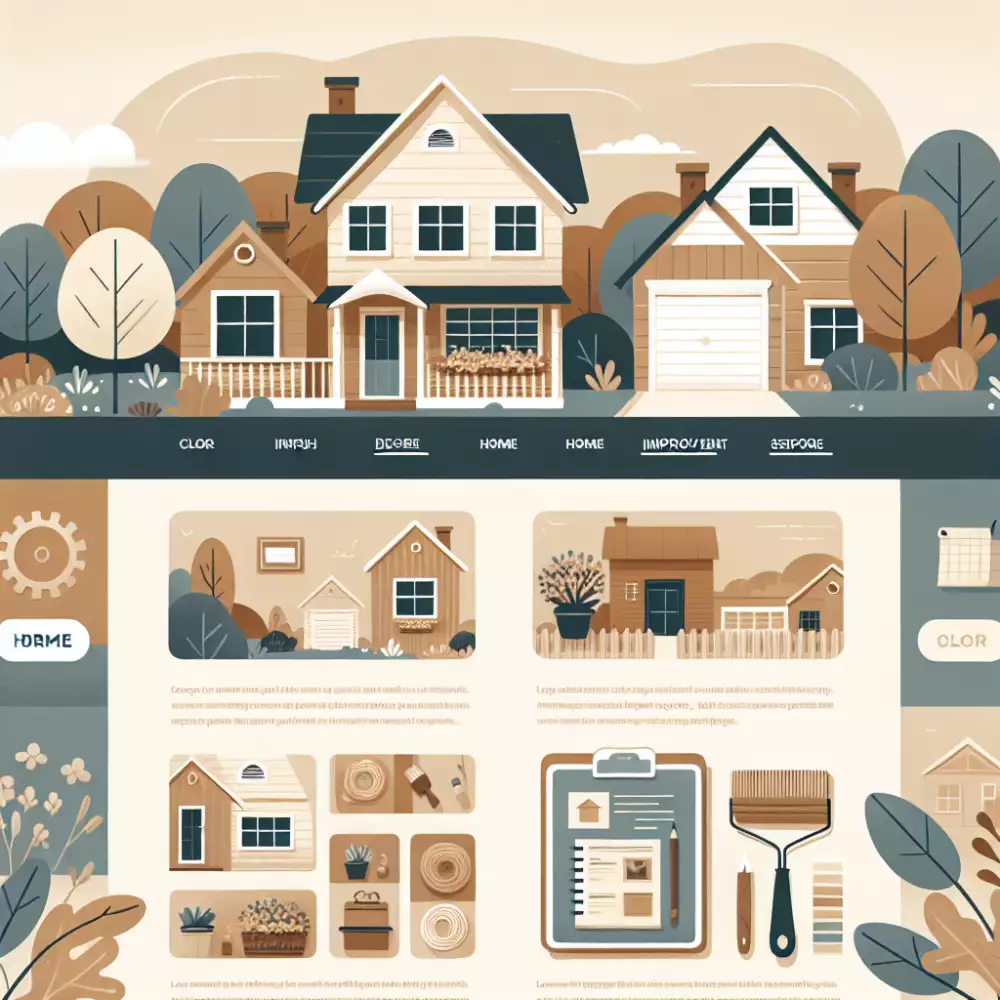
DIY home security systems are becoming increasingly popular as they are typically more affordable and easier to install. These systems often work on a subscription-free basis, meaning you won't have to pay a monthly fee for monitoring. Many DIY systems also offer similar features to traditional systems, such as door and window sensors, motion detectors, and security cameras.
When choosing a home security system, consider your budget, the level of security you need, and your comfort level with technology. It's also important to think about the size of your home and whether you need features like fire and carbon monoxide detection.
No matter what type of home security system you choose, you can rest assured that you're taking a significant step in protecting your home and loved ones. With the right system in place, you can have peace of mind knowing that your home is safe and secure.
Remote Monitoring
Remote monitoring is revolutionizing how we manage and interact with our homes. Imagine having the power to keep an eye on your property, control systems, and receive instant alerts, all from your smartphone or computer, no matter where you are. That's the convenience and peace of mind that remote monitoring brings to homeowners.
With remote monitoring systems, you can:
- Enhance home security by receiving instant notifications of unusual activity detected by security cameras or sensors.
- Monitor and control your home's temperature, lighting, and appliances remotely, improving energy efficiency and comfort.
- Keep an eye on valuable assets or loved ones, such as elderly family members or pets, through connected cameras and sensors.
- Receive alerts for potential issues like water leaks, fire alarms, or power outages, allowing for prompt action and minimizing damage.
Remote monitoring systems typically consist of sensors, cameras, and a central hub that connects to your home's Wi-Fi network. These systems can be customized to fit your specific needs and budget, offering a range of features and integration options. Whether you're looking to deter burglars, optimize energy consumption, or simply have greater peace of mind, remote monitoring provides a powerful and convenient solution for today's connected homeowner.
High-Speed Internet
In today's digital age, having a fast and reliable internet connection is no longer a luxury but a necessity. Whether you're working from home, streaming your favorite shows, or simply browsing the web, a high-speed internet connection can make all the difference. When considering a new home, it's essential to prioritize high-speed internet availability. Look for homes with existing fiber-optic connections, cable internet options, or DSL services with sufficient speeds to meet your needs. Check internet service providers in the area and compare their plans and pricing to find the best fit for your usage habits. A home with reliable high-speed internet is not just a modern convenience but a valuable asset that enhances your lifestyle and keeps you connected to the world.
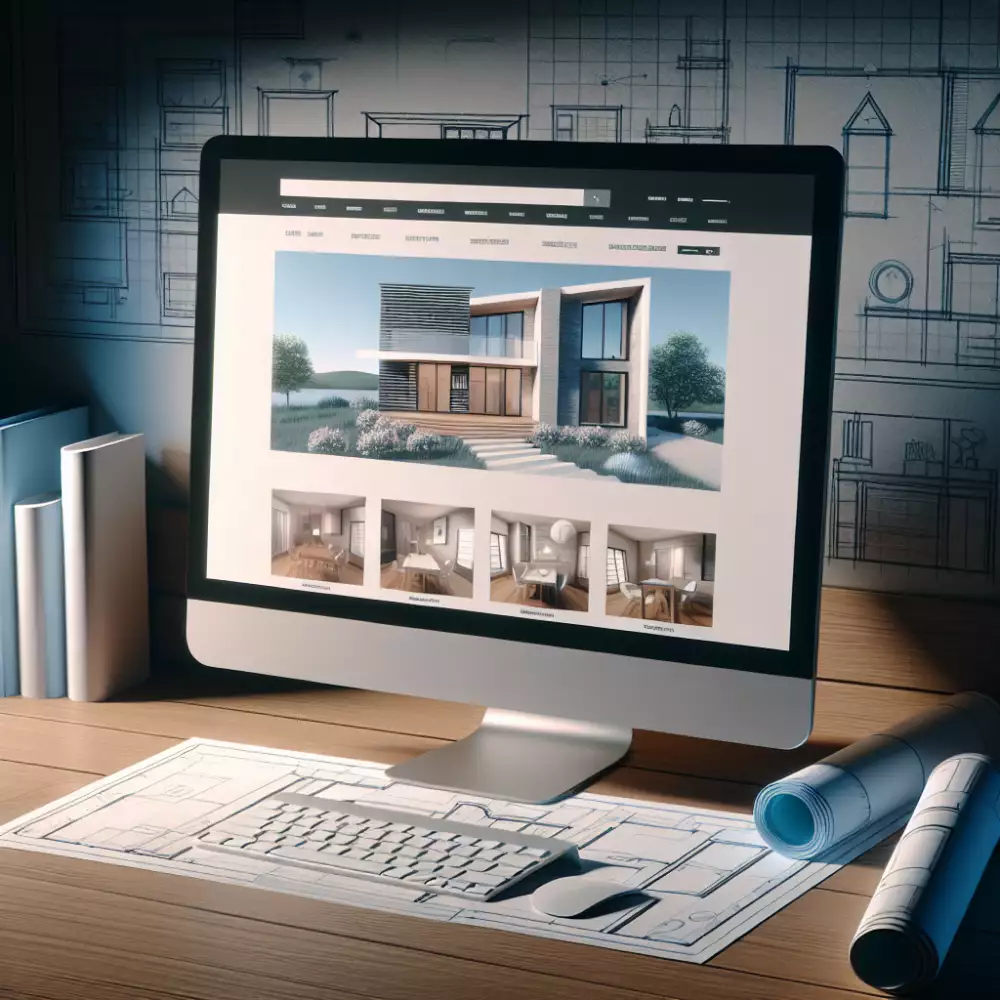
Voice Assistants
Voice assistants are changing how we interact with our homes. With a simple voice command, you can control your smart home devices, get information, and manage your daily tasks, all hands-free. Imagine turning on your lights, adjusting the thermostat, or playing your favorite music just by asking. Voice assistants can also be helpful for individuals with mobility limitations, making it easier to control their environment. As you explore home improvement options or browse real estate listings, consider the possibilities that voice assistants can bring to your living space. From enhanced convenience to improved accessibility, voice assistants are transforming the modern home experience.
Sustainable Tech Options
More and more homeowners are looking for ways to make their homes more eco-friendly, and thankfully, there are plenty of sustainable tech options available to help you do just that.
One of the most popular options is solar panels. Solar panels convert sunlight into electricity, which can power your home and reduce your reliance on fossil fuels. While the initial investment for solar panels can be significant, there are often government incentives and tax credits available to help offset the cost, and in the long run, you'll save money on your energy bills.
Another great option is a smart home energy management system. These systems allow you to control and monitor your home's energy usage remotely using your smartphone or computer. You can adjust the temperature, turn lights on and off, and even monitor your energy consumption in real-time. By having greater control over your energy usage, you can identify areas where you can save energy and reduce your carbon footprint.
If you'
Digital Floor Plans
Digital floor plans have revolutionized the way we design, visualize, and experience homes. Gone are the days of grappling with cumbersome blueprints and struggling to envision spatial relationships. With digital floor plans, you can explore interactive 2D drawings or even immersive 3D models that bring your dream home to life. Imagine being able to virtually walk through every room, getting a true sense of scale and flow. These plans allow you to experiment with different furniture arrangements, explore various design options, and make informed decisions about your space. Whether you're planning a renovation, building a new home, or simply trying to optimize your current layout, digital floor plans provide an invaluable tool for homeowners, interior designers, and architects alike.
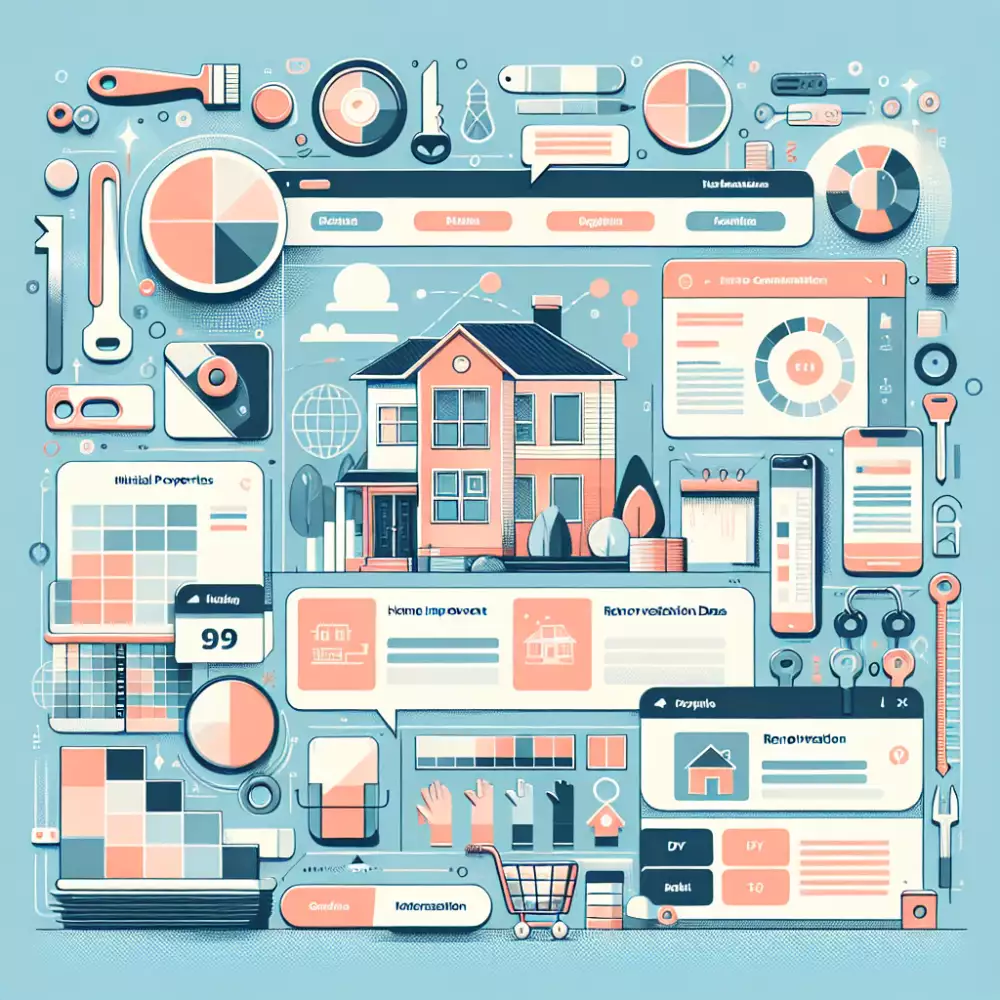
They offer unparalleled precision and detail, ensuring that every measurement is accurate and every architectural element is accounted for. This level of accuracy is crucial for avoiding costly mistakes during construction or renovation projects. Moreover, digital floor plans can be easily shared and collaborated on, facilitating seamless communication between homeowners, contractors, and designers. From visualizing potential to streamlining the design process, digital floor plans empower you to create a home that perfectly reflects your vision and lifestyle.
Online Mortgage Calculators
Online mortgage calculators are powerful tools for anyone looking to buy a home or refinance their current mortgage. These calculators provide estimates of monthly mortgage payments, interest rates, and other loan terms, helping you make informed decisions about your home financing. With just a few clicks, you can input your loan amount, down payment, interest rate, and loan term to receive instant calculations. This allows you to compare different loan scenarios and see how changes in interest rates or down payment amounts can impact your monthly payments. Many online mortgage calculators also offer advanced features, such as the ability to factor in property taxes, homeowners insurance, and private mortgage insurance (PMI). Some calculators even provide amortization schedules, showing you the breakdown of your monthly payments over the life of the loan. By using online mortgage calculators, you can gain a better understanding of the financial aspects of homeownership and make well-informed decisions about your mortgage.
"Building dreams, one pixel at a time."
Anya Volkov
Neighborhood Data Platforms
Neighborhood data platforms are changing how we understand our communities. These platforms gather and analyze hyperlocal data, providing valuable insights into various aspects of a neighborhood. Imagine having access to real-time information about property values, school districts, crime rates, and even noise levels. This data can be incredibly useful for homeowners, homebuyers, and real estate professionals alike.
For homeowners, neighborhood data platforms offer a deeper understanding of their community's dynamics. You can track property value trends, assess the quality of local schools, and stay informed about safety concerns. This information empowers you to make informed decisions about your home, whether it's planning renovations, understanding your property's worth, or simply staying aware of what's happening around you.
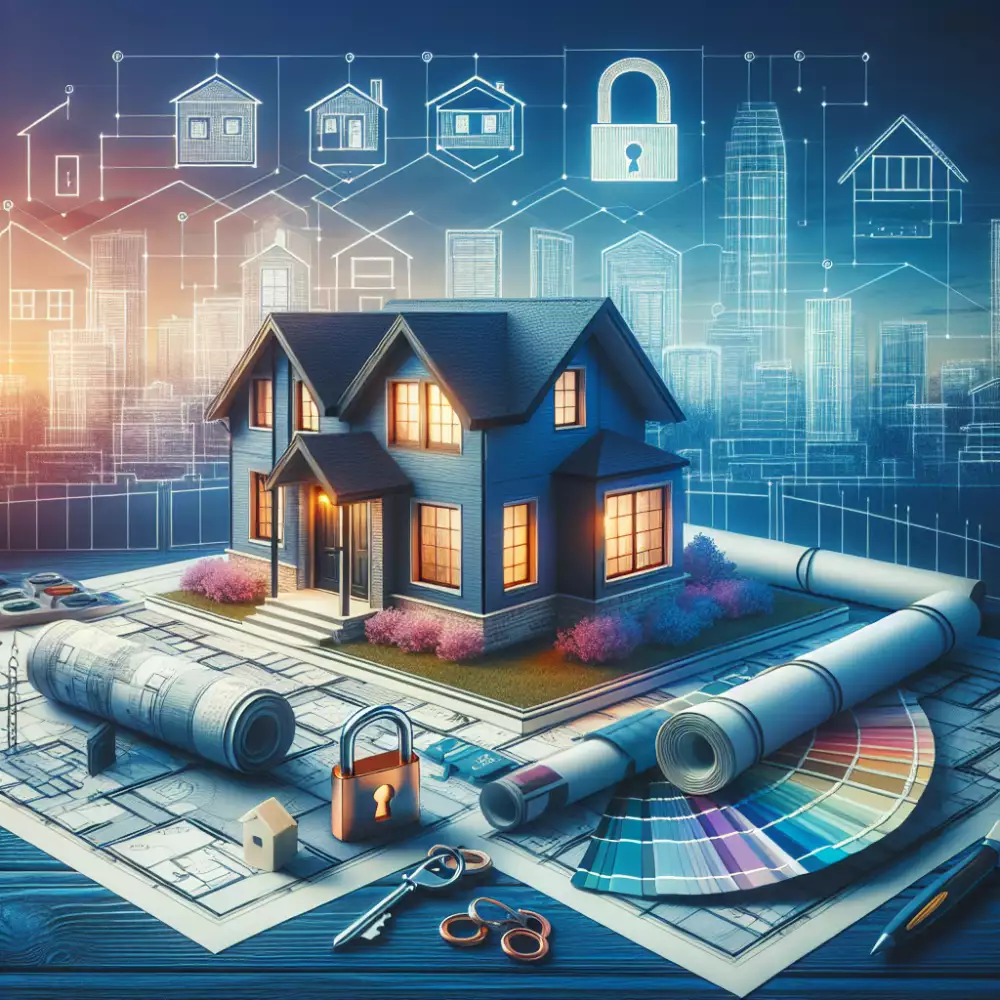
If you're considering buying a home, these platforms are invaluable tools. They allow you to compare different neighborhoods side-by-side, factoring in crucial data points like commute times, amenities, and community demographics. This data-driven approach helps you find the perfect neighborhood that aligns with your lifestyle and preferences.
Real estate professionals also benefit significantly from neighborhood data platforms. Access to comprehensive and up-to-date information allows them to provide better service to their clients. They can generate accurate property valuations, identify emerging market trends, and offer data-backed insights to support their clients' decision-making processes.
In essence, neighborhood data platforms are transforming how we interact with our communities, making it easier to make informed decisions about our homes and neighborhoods.
Publikováno: 18. 08. 2024
Kategorie: Technology



